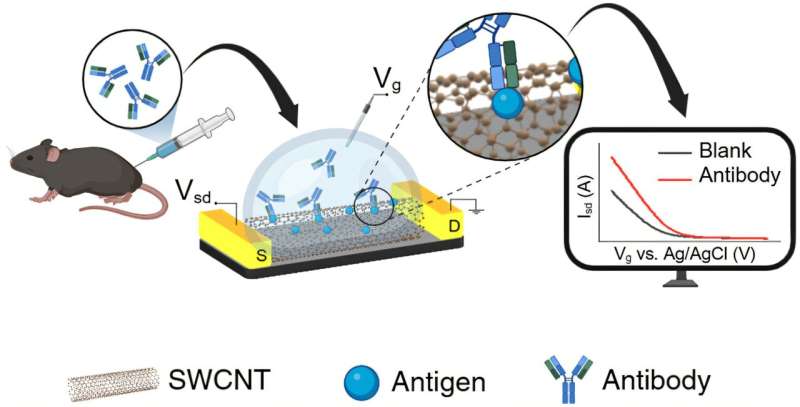Alexander Star, professor of chemistry in the Kenneth P. Dietrich School of Arts and Sciences, has also developed sensors using a similar platform to detect, among other substances, marijuana and fentanyl.
An antibody test can indicate whether a vaccine has successfully taught someone’s immune system to fight a specific virus. If a test indicates someone has mounted a strong enough response without a vaccine, they may not need to get a booster.
The sensor uses a virus-specific antigen attached to a carbon nanotube, which is 100,000 times smaller than a human hair. The sensor can be attached painlessly on the skin using a microneedle array which samples the fluids between skin cells. When an antibody binds to its partner antigen, the electrical properties of the nanotubes change, indicating their presence.

